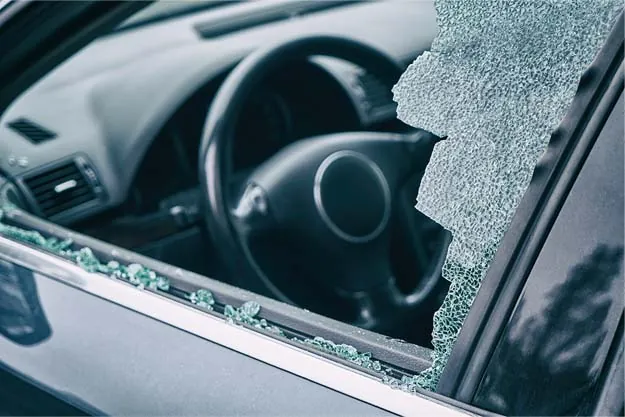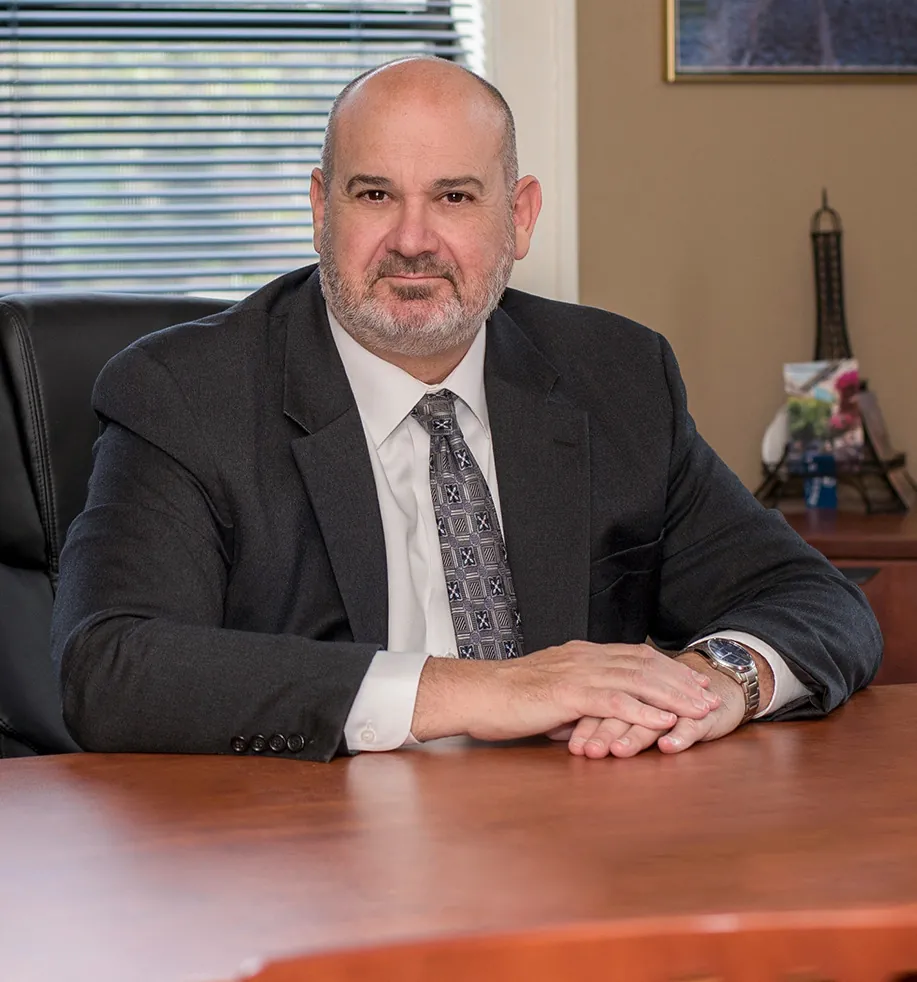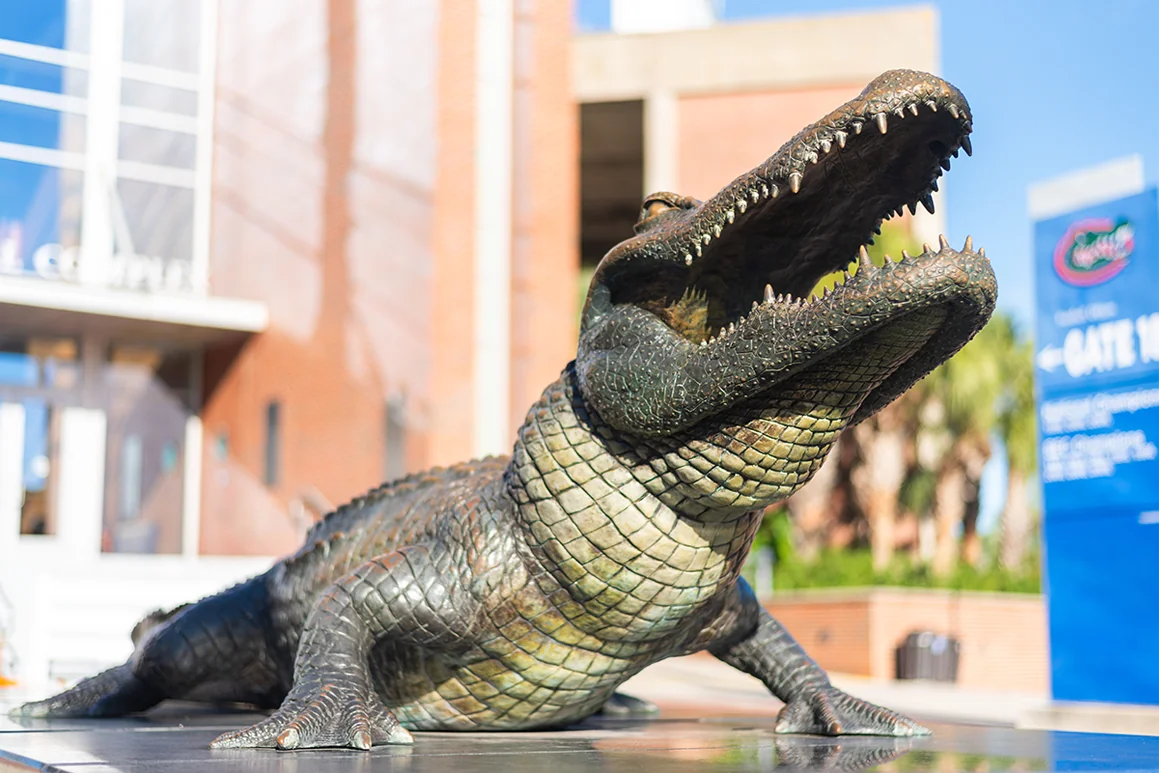Floridians, as with most Americans – especially those living in the South, are notoriously very proud of their property and endeavor to protect it by law. While property crime might sound like a minor offense, it includes such severe crimes as arson and burglary, and has the staunch penalties to match.
Facing these property crime offenses can be an intimidating experience, and it may not end with just the criminal penalties. It is possible you may face a civil suit as well. Contracting with an experienced Gainesville criminal lawyer may be the key ingredient to a defense that will lead your property crime case to a favorable outcome such as a reduction or dismissal in Alachua County.
Property Crime Defense Attorney in Gainesville, FL
In a region known for its no trespassing signs and staunch protection of property like the Southern United States, a property crime charge is not to be taken lightly. If you have been arrested and charged with a property crime offense in Gainesville, Alachua County, or the surrounding areas like Ocala in Marion County and Lake City in Columbia County, the knowledgeable Florida property crime attorneys of Galigani Law Firm can put their nearly 50 years of combined experience to work for you.
Galigani Law Firm will do whatever it takes to fight the property crime charges against you. To schedule your free consultation with a Alachua County property crime lawyer, call (352) 375-0812 today.
Information Center for Florida Property Crimes
- Types of Florida Property Crime
- Penalties for Alachua Property Crimes
- Can You Trespass on Public Property in FL?
- Will I Get Arrested for Vandalism in FL?
- Property Crime Statistics in Florida
- Gainesville Resources for Property Crime
Types of Florida Property Crime
In Florida, a property crime is just like it sounds – any criminal offense involving property that does not belong to the offender. This can include anything from damaging the property to being on the property without permission. Most property crimes and their penalties are spelled out in the Florida Statutes under chapters 806 and 810. It is recommended you contact an experienced Gainesville criminal defense lawyer if arrested on any of the following Alachua County property crimes:
- Vandalism – The offense of vandalism is known as criminal mischief in Florida, and is defined by Fla. Stat. § 806.13 as the willful and malicious injury or damage to any real or personal property belonging to another person, including the act of graffiti. Aggravating circumstances for this offense include the value of the property, any previous convictions, if a telephone or telephone line was disabled during the offense, or if the defaced property was a religious place of worship or property therein.
- Criminal Trespass – Criminal trespass is when, according to Fla. Stat. §§ 810.08-810.09, an unauthorized or uninvited person willfully enters or remains in any structure, conveyance (such as a mobile home), or on property other than a structure or conveyance (such as a yard or farm land). Criminal trespass is also when an authorized or invited person enters the property, structure, or conveyance and refuses to leave after being told by the owner or other authorized person to leave.
-
- This offense includes the exposure of animals, crops, or other property on the premises to waste, destruction, or freedom, the unlawful hunting or taking of animals on the property, and the unlawful dumping of litter on the property. Aggravating circumstances in these cases include if the structure or conveyance was occupied, if the offender had a gun or another dangerous weapon, or if the property was an appropriately signed construction site, commercial horticulture site, agricultural research site, agricultural chemical manufacturing facility, or domestic violence center
- Breaking and Entering – In Florida, breaking in entering is simply the colloquial term for burglary. Burglary is designated as an offense by Fla. Stat. § 810.02, which states that it is an offense to enter a dwelling, structure, or conveyance with the intent to commit an offense there, unless the premises is open to the public at the time or the defendant is otherwise authorized to enter. Aggravating circumstances include assault, battery, being armed with a deadly weapon, causing damage in excess of $1,000, and using a vehicle as an assisting tool in the commission of the offense which causes damage to the dwelling or structure.
-
- Whether or not you are authorized to enter the premises becomes invalid if you remain on the premises in a stealthy manner or after permission has been withdrawn, with the intent to commit an offense. Your authorization to be on the premises is also invalid if you enter the premises at any time to commit or attempt to commit a forcible felony such as aggravated assault, aggravated stalking, robbery, or manslaughter.
-
- It is sufficient evidence of intent to commit an offense if, during commission of what would be considered burglary or breaking and entering, the offender enters a structure or conveyance stealthily and without the owner’s or occupant’s consent.
- Arson – The offense of arson in Florida is defined by Fla. Stat. § 806.01 as when a person willfully, unlawfully, and/or in the commission of any felony damages or causes to be damaged by fire or explosion an occupied or unoccupied dwelling or its contents, or any structure that is normally occupied, such as a hospital or office building. Mitigating circumstances include if there was no chance the damaged property had or could have had people in it. Note that arson resulting in injury to another person is a separate offense governed by Fla. Stat. § 806.031.
Penalties for Alachua Property Crimes
What penalties you will face as a result of a property crime conviction in Florida depend largely on the offense and factors like how much damage was done and if there was risky of injury to others during the commission of the property crime. The severity of a vandalism or criminal mischief offense, for instance, depends on the dollar amount of damage done and if any aggravating circumstances where present while the property crime was being committed.
For $200 in damage or less, vandalism is a second-degree misdemeanor; for $200-$1000 in damage, a first-degree misdemeanor; for $1000 or more in damage, an interruption of a business operation or public service costing $1000 or more to restore, or an aggravating circumstance like those listed above, vandalism / criminal mischief is a third-degree felony.
For trespassing, if the structure or conveyance is unoccupied, it is a second-degree misdemeanor. Trespassing in an occupied structure or conveyance is a first-degree misdemeanor, and trespassing in a structure or conveyance in any scenario with a firearm is a third-degree felony. It is a first-degree misdemeanor to trespass on property other than a structure or conveyance, unless there are aggravating circumstances present, which would make it a third-degree felony.
Breaking and Entering, or burglary, is a third-degree felony when committed in an unoccupied conveyance or structure, and a second-degree felony when committed in an occupied conveyance or structure, or in a dwelling (such as a house or apartment) regardless of the status of occupancy. The aggravating circumstances for breaking and entering in Florida upgrade the offense to a first-degree felony. Arson involving damage to only a structure with no risk to other persons is a second-degree felony, while arson involving a dwelling or any place that is or could be occupied is a first-degree felony.
These property crimes have penalties according to what degree offense they are. Additionally, graffiti offenses under vandalism come with a $250, $500, or $1,000 fine depending on if it’s your first, second, or third conviction. All Florida felonies, including property crimes, have sanctions like the loss of certain civil rights and ineligibility for specific government assistance. Contact an experienced Alachua County property crime defense attorney to fight any of the following penalties for your Gainesville property crime:
Second-Degree Misdemeanor
- Up to 60 days in jail and/or
- Up to $500 in fines
First-Degree Misdemeanor
- Up to a year in jail and/or
- Up to $1000 in fines
Third-Degree Felony
- Up to five years in prison and/or
- Up to $5000 in fines
Second-Degree Felony
- Up to 15 years in prison and/or
- Up to $10,000 in fines
First-Degree Felony
- Up to 30 years or life in prison and/or
- Up to $10,000 in fines
Can You Trespass on Public Property in Florida?
Normally, when we think on the act of trespassing, we imagine someone entering a private property without permission. What you might not know is that you can also be arrested for trespassing in a public area such as a school, library, or post office. Although these areas are open to the public, you could still be arrested for trespassing at certain times.
According to Florida Statute section 810.08, a person can be charged with trespassing if they refuse to leave a public building or area during closing hours. They can enter and remain in the public structure or area during normal working hours, but once it’s closed, they are no longer allowed to stay on the premises. Florida law also requires these public areas to advertise their open hours on the property by the appropriate signage.
Is Criminal Mischief an Arrestable Offense in Florida?
Criminal mischief is the legal term in Florida for acts of vandalism. The crime is non-violent and often results in minimal damage. The majority of criminal mischief offenders are teens or young adults who are simply having a fun time and not thinking of the consequences. Despite these factors, you could still be arrested for criminal mischief if you’re over the age of 18.
Criminal mischief is an arrestable offense even though the act is non-violent and often can be fixed with some soap and water. If you’re found committing the crime, you could very well be booked and remain in jail until you secure a bail bond. The penalties for criminal mischief include up to 60 days in jail and probation for up to 6 months.
Florida Property Crime Statistics
In an effort to track historical trends of crimes, the Florida Department of Law Enforcement has collected information from departments across Florida. The program is referred to as Uniform Crime Reporting and offers statistics regarding Florida crimes over the years. Certain property crimes are included in those reports such as burglary, larceny and motor vehicle theft. The following are some property crime statistics for the state of Florida from 2015 to 2018.
- 2016
- 100,090 people committed burglary
- 409,381 people committed larceny
- 43,044 people committed motor vehicle theft
- 2017
- 88,778 people committed burglary
- 395,150 people committed larceny
- 42,889 people committed motor vehicle theft
- 2018
- 71,801 people committed burglary
- 372,350 people committed larceny
- 41,119 people committed motor vehicle theft
Gainesville Resources for Property Crime
Florida Statutes Chapter 806 – Arson and Criminal Mischief – The best way to understand the property crime charges against you is to consult with someone who has extensive legal knowledge, such as an experienced Alachua County criminal defense attorney. However, it is also possible to develop your own understanding of your arson or criminal mischief charges by reading the statutes yourself. This links to the index for the statutes governing arson and criminal mischief in the Florida code.
Florida Statutes Chapter 810 – Burglary and Criminal Trespass – Follow this link to the index for Chapter 810 of the Florida Statutes, which governs the offenses of burglary and criminal trespass. See for yourself important information regarding your property crime offense, including definitions for specific terms and what constitutes certain prima facie (or sufficient) evidence.
Gainesville Property Crime Lawyer in FL | Galigani Law Firm
If you have been charged with a property crime such as arson, criminal mischief, burglary, or criminal trespass in Alachua County, Marion County, Levy County, Gilchrist County, Columbia County, Baker County, Bradford County, or Union County, contact the experienced and knowledgeable property crime defense lawyers of Galigani Law Firm.
Founded on the principles of advocacy, compassion, and communication, Galigani Law Firm will do whatever it takes to achieve your desired favorable outcome for your Gainesville property crime case. Your first consultation is free, so call (352) 375-0812 today to schedule yours.








